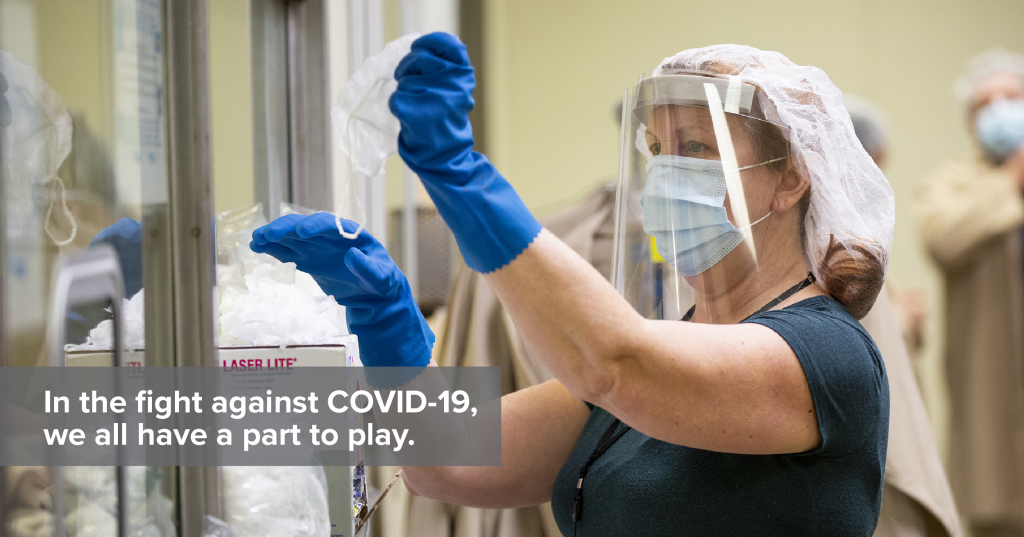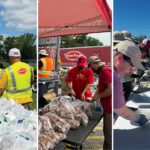You’ve probably heard the term “essential worker.” You might even know a few. Among them are those in the medical profession, utility workers, and food production – like Tyson team members. All contribute to tasks that keep our nation going during the COVID-19 pandemic.
That’s why workplaces like ours are putting extra measures in place to keep frontline employees protected. We are providing facial coverings for all workers, conducting symptom screening (including temperature scanning) daily and facilitating social distancing with physical barriers between workspaces.
But have you ever considered the role you play in keeping essential workers safe?
Tom Brower, senior vice president of health and safety at Tyson, says, “Combining protective measures is the most effective way to keep our team members safe.”
We ALL factor into that equation. In addition to keeping yourself and your loved ones safe, here are three ways you can protect essential workers you might encounter in your community.
Choose actions that protect others.
Keeping a safe distance from others takes many forms. If you do decide to go out in public: keep those trips to a minimum, make sure you stay at least six feet away from others, avoid large gatherings (10 or less is best), follow directional signs in stores, and of course, wear a mask the correct way. If you don’t know where to find a mask, check for sales through social media classifieds or watch tutorials to make one yourself.
Let’s be clear: masks alone don’t keep you safe, but they might keep the person next to you safe. In grocery stores and other places where social distancing is a challenge, wearing a mask can help ensure you don’t spread infection to others.
Communities that practice good social distancing play a key role in reducing the spread of COVID-19.
Wash your hands as often as possible.
Did you know, if you’re like most people, that you touch your face 23 times … an hour? While the virus spreads mainly from person to person contact, “it may be possible that a person can get COVID-19 by touching a surface or object that has the virus on it.” Washing your hands for at least 20 seconds helps ensure you don’t transfer the virus from a shopping cart to your face or vice versa.
And don’t forget hand sanitizer. If you are unable to wash your hands the traditional way, the “CDC recommends consumers use an alcohol-based hand sanitizer that contains at least 60 percent alcohol.”
When in doubt, stay home.
If you feel like you may be sick, or getting sick, just stay home. This reduces the potential spread of any illness you may knowingly, or unknowingly, be carrying. Even if you don’t feel sick, it’s a good general rule to stay home unless you really need to venture out for work or basic items. Imagine cutting out a single errand a week, like making one trip to the grocery store instead of two. It could mean you avoid close contact with dozens of others.
Just remember: in the fight against COVID-19, we all have a part to play.
Tyson team members and other essential workers in your area are depending on the safe habits of people like you. The next time you enjoy a meal, receive medical care or turn on your lights, think about the hardworking people who made that happen — and what you can do to keep them healthy.





